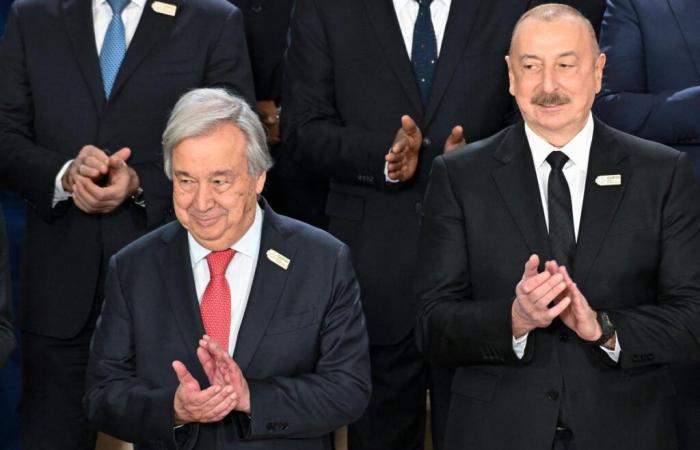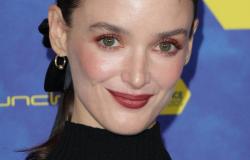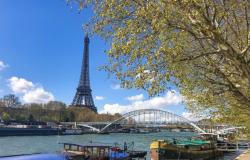The leaders of developing countries, well represented at COP29, are pleading on Tuesday for a historic financial agreement on aid from rich countries, but most of the G20 heads of state are absent, at the start of one of the most important climate negotiations. more difficult since the Paris agreement in 2015.
Developing countries cannot leave “empty-handed,” said UN Secretary-General Antonio Guterres. These countries are calling for a tenfold increase or more in the annual financial aid paid by developed countries to countries in the South, currently around $116 billion per year (in 2022). Amounts considered unrealistic by Westerners who are more inclined to reduce their public spending at the moment.
“Gift from God”
A week after the earthquake of Donald Trump's re-election in the United States, some 75 leaders are expected in Azerbaijan, with the unofficial agenda of charting the route to climate diplomacy without the world's leading power.
This COP29, organized one year after the Dubai COP, opened on Monday with vibrant calls for international cooperation. Everyone expects Donald Trump's United States to become, next year, the only country to leave the Paris agreement twice. “Our process is solid. It is robust and will last,” says Simon Stiell, head of the UN climate, which is co-organizing the conference with Azerbaijan.
Tuesday, Ilham Aliev, the president of the country, the historic cradle of oil, assumed his expression “gift from God”, to designate the hydrocarbons which have made Azerbaijan rich. He recalled that the European Union had asked him to supply more gas, after the energy crisis of 2022.
Macron absent
“Any natural resource, oil, gas, wind, solar, gold, silver, copper: these are natural resources and countries should not be blamed for having them and providing them to the markets, because the markets need them” , said Ilham Aliyev. The “fake news media” of the United States, “the world’s leading producer” of fossil fuels, “had better look in the mirror”.
The emissary of Democratic President Joe Biden, John Podesta, is present to reassure his partners. But the early exit of the world's second largest polluter weakens the words of its negotiators on the permanence of American commitments. The Europeans have certainly made it possible to persevere, but they are not rushing to Baku.
Emmanuel Macron, Olaf Scholz and the president of the European Commission are absent from the summit on Tuesday and Wednesday. The EU will be represented in particular by the Hungarian Viktor Orbán, who holds the rotating presidency of the Council, Andrzej Duda (Poland), Pedro Sanchez (Spain) and Giorgia Meloni (Italy).
“Everything is still possible”
Only a few G20 countries will be represented by a head of state or government, including the United Kingdom with its Labor Prime Minister Keir Starmer, expected to make a new commitment to reduce greenhouse gases.
“It is very important that the United Kingdom shows leadership,” he told reporters in Baku on Tuesday morning. Keir Starmer said he was “glad to work with President Trump, of course, as we do with all international leaders”. Some 52,000 participants are expected over the two weeks of COP29, in the Olympic stadium in Baku, on the shores of the Caspian, a sea in which Azerbaijan plans a strong expansion of its natural gas production.
Opening of COP29 on the climate: money, always money
COP29 starts this Monday, November 11 in Baku, capital of an oil and gas country, Azerbaijan. Already difficult, the North-South dialogue which constitutes the main course on the menu will be disrupted by the election of Donald Trump, a climate denier who wants to demolish multilateralism






